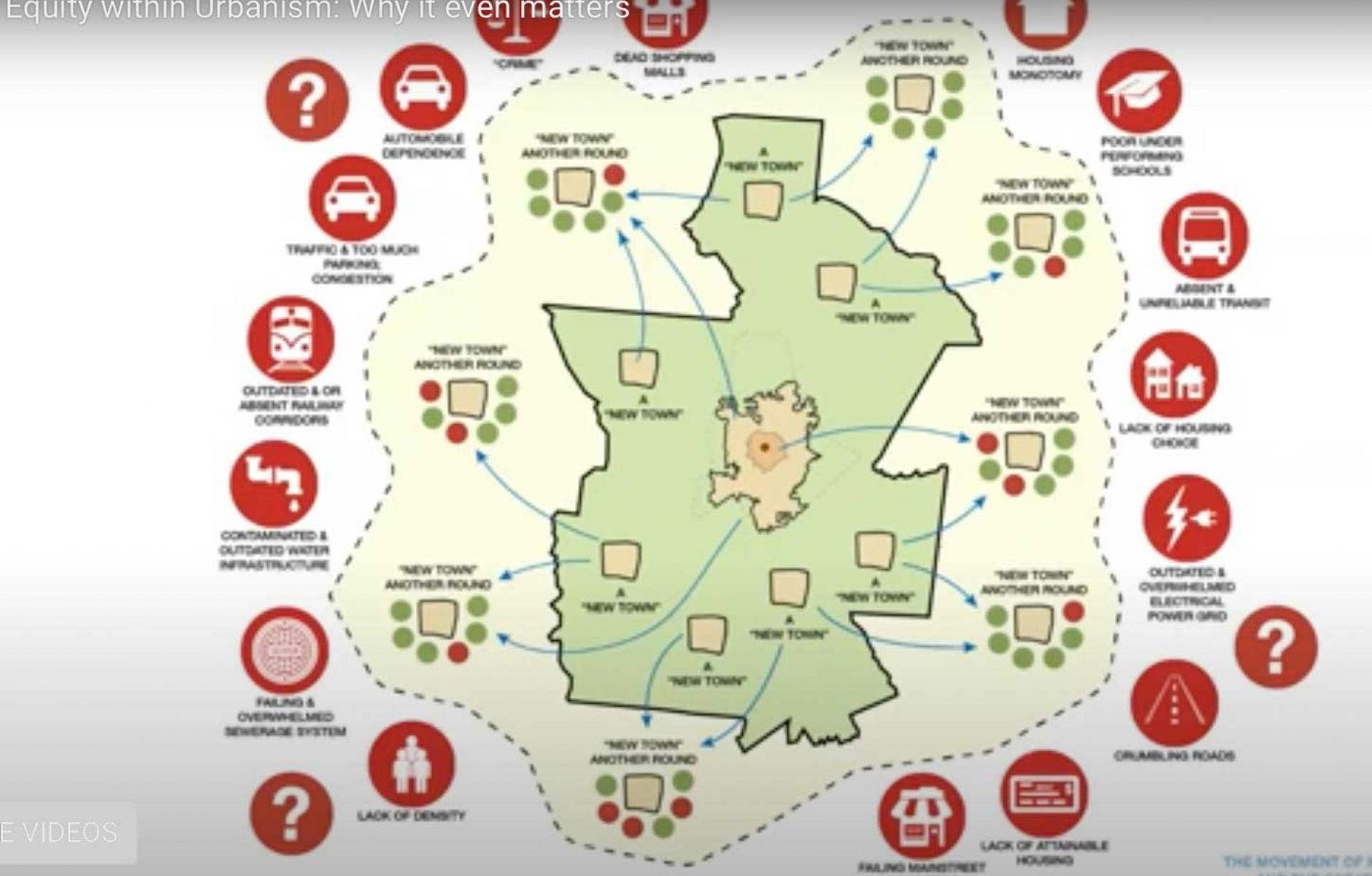
Why we need to address equity within urbanism
Architect, urban designer, and small-scale developer Marques King reviewed the legacies and precedents of racism within American land use and how this history shows us a way forward. King covered 300 years of American urbanism through an equity lens in a On the Park Bench webinar, beginning with a little-known quote from Martin Luther King, Jr.
“At the same time that the US government refused to give the negro any land, through an act of Congress, our government was giving away millions of acres of land in the West and the Midwest, which meant it was willing to undergird its peasants from Europe with an economic floor. Not only did they give the land, they built land grant colleges with government money to teach them how to farm, and they provided county agents to further their expertise in farming, not only that, they provided low interest rates in order that they could mechanize their farms, not only that, many people are receiving millions of dollars in federal subsidies not to farm, and they are the very people telling black man he ought to lift himself by his own bootstraps.”
The quote exemplifies the way that African Americans have been excluded in land use and public space. The remedy to this is deeply imbedded in how we plan and build communities, he argues.
“It has to do everything with urbanism,” he says. “The buildings we design, the blocks we scale, the neighborhoods we plan and the real estate we develop, whether we realize it or not, serve as the backdrop in cities, and in towns, for social and economic progress, and/or problems.”
King offers four formal solutions with social overtones:
- Incrementalism. Organic growth is the best growth.
- Make the small and simple stuff easy to do. It shouldn’t be this hard.
- Misalignment of the systems needed to create great places. Things we need to coordinate.
- Acknowledge the truth of the past in your work. We can’t provide a bandaid without acknowledging the wound. (Racial equity within urbanism).
Watch the entire presentation:
Editor's note: This article addresses CNU’s Strategic Plan goal of growing the supply of neighborhoods that are both walkable and affordable.




